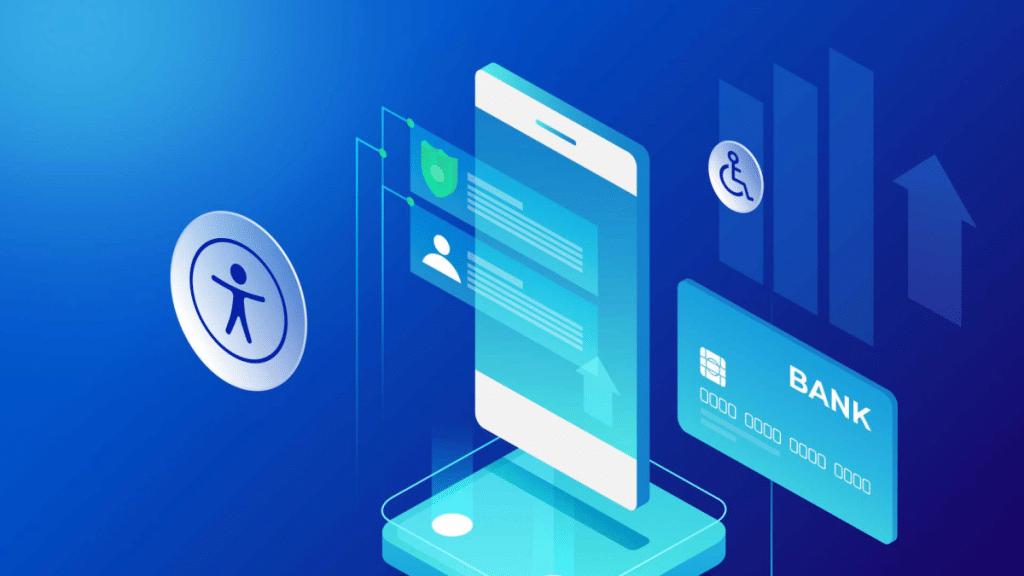Online banking has become a practical and effective way for us to manage our money as a result of the transformation brought about by the digital age in how we connect with our finances. Despite the quick improvements in technology, it’s essential to maintain online banking’s accessibility and inclusivity for all users, irrespective of their ability. Let’s look at how a commitment to accessibility can result in internet banking becoming a tool for everyone.
Opening Doors with Digital Accessibility
Imagine an instance in which going to a bank meant navigating staircases without a ramp, handleless doors, and teller windows that were out of reach for some people. Without a question, we would view this as a serious inconvenience and a violation of fundamental human rights. The digital sphere is the same. It’s critical that everyone, including those with disabilities, can access and benefit from internet banking, which is quickly becoming a necessity in our daily lives.
Accessibility is a concept that transcends physical locations and applies to the online world as well. When created with accessibility in mind, online banking enables those with visual impairments to use screen readers that turn text into speech. With the help of this feature, everyone will have easy access to information such as transaction history and account balances. Moreover, user interfaces with well-contrasted colors and adjustable font sizes benefit not only the visually impaired but also those with cognitive difficulties.
A World of Inclusive Convenience
The goal of online banking is to level the playing field for all people, regardless of their physical or mental skills. It’s not just about convenience. Imagine being able to handle account management and bill paying without having to leave your home for a retiree with mobility issues. Their quality of life may greatly improve thanks to their newly acquired freedom.
Additionally, online banking gives those who might reside in distant places with little access to physical banks additional influence. These services give financial power to those who might not have had it otherwise, whether it is through money transfers, cheque deposits using mobile apps, or setting up automatic payments.
Breaking Language Barriers
In our increasingly globalized world, language diversity is a given. By providing multilingual interfaces, online banking can transcend linguistic boundaries. Users who are not proficient in the regional language can handle their funds with confidence thanks to this function. For instance, someone who is not a natural English speaker but lives in an English-speaking nation can easily use their online banking platform and understand terms and instructions in their own tongue.
The Road Ahead: Striving for Perfection
Although significant progress has been made, there is still a long way to go before online banking is completely accessible. User testing and routine audits can help find potential obstacles and guarantee that changes are made continuously. For instance, ensuring that the “forgot password” procedure is as user-friendly as possible will help to keep users, including those who have cognitive difficulties, from becoming frustrated.
It is crucial that user interface designers, accessibility specialists, and people with impairments work together. Online banking systems may make well-informed decisions that actually improve accessibility by getting information from the people who will be directly impacted by these changes.
Cybersecurity and Inclusivity Hand in Hand
Online banking’s core value is security, and all users must be protected by any security measures that are done. For those who might not have access to a mobile phone, such as people with limited mobility or older persons who may not be tech-savvy, two-factor authentication, for instance, could offer alternatives. By balancing security with accessibility, one can guarantee that everyone may enjoy the advantages of online banking without risking the protection of important information.
The Promise of a More Inclusive Future
Online banking has the ability to close gaps and bring financial services to all facets of society in a world that is growing more linked. However, the realisation of this potential must place accessibility at the forefront. We can make sure that internet banking actually turns into a tool for everyone by putting a priority on user inclusivity, attending to a range of needs, and continuously improving platforms.
As we move forward, let’s keep in mind that technology’s ultimate strength comes not merely in its capabilities but also in its capacity to bring people together, give them more power, and make the world a more welcoming place. Through easily accessible internet banking, we are developing a sense of belonging and autonomy that transcends barriers and empowers every individual in addition to managing money.

